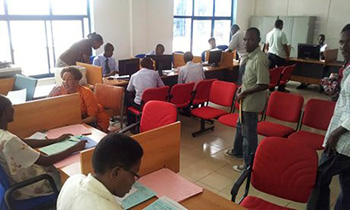
In 2009, Burundi's GDP per capita at $150 per annum was one of the lowest in the world. 80% of the population subsisted below $1 a day and Transparency International listed Burundi as "the most corrupt country in East Africa". It presented one of the most difficult environments in the world to improving the collection of domestic taxes.
Yet now, reforms undertaken to improve tax administration in recent years firmly place Burundi as a leading reformer across Africa. In 2009, tax revenue stood at 300bn Burundi francs ($201m), but by 2013, this increased by an impressive 75%, representing a 25% increase in real terms. The contribution of tax revenues to GDP increased by almost 3% during the same time frame.
These results have translated into concrete service delivery outcomes. Using its own increased domestic revenues to fund development projects, Burundi has built a major new hospital and 400 health centres. It increased funding to the agriculture sector by almost 5% in 2012 and plans to expand power supply through the construction of a new $40m hydrodam.
A number of factors have contributed to this strong performance, including the establishment of a semi-autonomous revenue agency in 2009, the Office Burundais des Recettes (OBR). Furthermore, there have been legal and operational reforms by this agency to modernise tax, customs and investigations functions and a drive to reduce corruption. This has all been overseen by a leadership team headed by an experienced and committed expatriate commissioner-general.
These reforms wouldn't have been possible without a strong focus on modernising human resources and improving governance overall, enabling the OBR to recruit and retain the best talent. Adam Smith International has supported the OBR with these reforms since 2009, through the provision of quality technical assistance, funded by Trade Mark East Africa (TMEA).
Between September 2009 and April 2011, the transition of the existing tax and customs departments of the ministry of finance was facilitated to create the new Office Burundais des Recettes. Working in tandem with the commissioner-general, there was a retrenchment of staff and the recruitment of 425 senior and mid-level replacements through merit-based appointment. In total, 9500 applications were received for these positions and from these, over 2000 candidates were tested and marked. 700 candidates were then interviewed and very few ministry of finance employees were re-employed by the agency. This exercise was widely commended for its transparency by DfID and TMEA.
All commissioners and directors were also placed on two-year contracts, renewable only subject to good performance. Such changes often take years to design and implement, but Burundi has been remarkably swift and the country is now in line with advanced OECD countries. The tax agency has quickly established a reputation as a model employer across Burundi's public service.
With these foundations in place, since January 2012, Adam Smith International has supported the OBR to build on these early gains. A new organisational structure has been developed along functional lines and appointments to new positions are being made through an open merit-based process. A code of conduct and disciplinary procedures have enabled 13 officers to be dismissed in 2013 for corruption, re-inforcing OBR's zero tolerance approach towards corruption. All HR policies and procedures are in the process of being revised and modernised. Governance has also improved. A board of directors oversees the work of the OBR and is progressively making the transition from involvement in the day-to-day affairs to monitoring performance against the agency's medium-term corporate plan and addressing bottlenecks in the implementation of policies and procedures.
A strong commitment by OBR's leadership to continue with these reforms indicates that they are likely to be consolidated during the next few years. Improved HR has been a cornerstone of OBR's success.
This content is produced and controlled by Adam Smith International